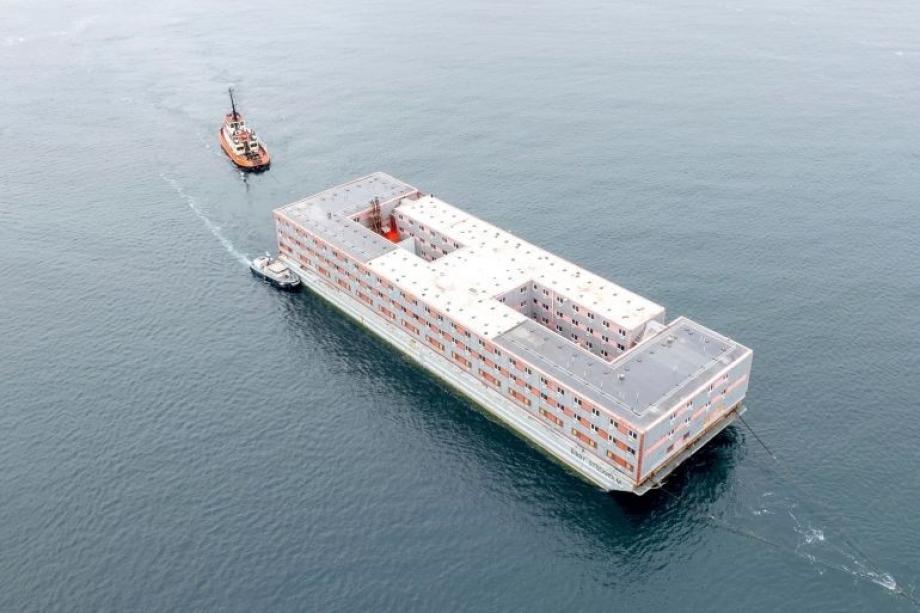
The British authorities transferred the first group of irregular immigrants to the “Bibby Stockholm” barge, amid condemnation by associations and organizations, which said that the barge was no suitable place for asylum seekers and survivors of war, terrorism and torture.
Buses were seen arriving at the port of Portland, with people carrying bags on board, before they were escorted by employees heading to the barge “Bibby Stockholm” moored in the port of Portland in Dorset, northwest England, according to “Info Migrants” website.
Despite the authorities’ claim that “Bibby Stockholm” is a suitable and safe environment for asylum seekers to reside, Steve Smith, head of the “Care for Calais” association, said that among those transferred by the authorities were “people who survived torture, modern slavery and suffered painful experiences at sea.” While Amnesty International explained, “It is a shameful way of sheltering people fleeing conflict and persecution.”
Under Secretary of State in the Home Office, Sarah Dines, said earlier that “the first refugee will be placed on board the Bibby Stockholm at any moment, but the government hopes to accommodate 500 people on the ferry by the end of the week,” stressing that “all possibilities” for dealing with the migrant crisis are under study.
In defense of the plan, Dines said the barge “sends a strong message that there will be adequate but not luxurious housing,” noting that “luxury hotel accommodation was unfortunately part of the process of attracting more immigrants.”
She added: “There have been promises by gangs and organized criminal organizations who are working to get people into the country illegally and they are saying ‘You’re going to stay in a very nice hotel in the heart of England!’ This needs to be stopped. The barge is one of a wide range of other measures.”
The three-deck barge consists of 222 cabins and was refurbished in the port of Falmouth, southwest England, before docking in Portland about three weeks ago. It served as accommodation for workers building the gas plant in the Shetland Islands and was used by the Dutch government to house asylum seekers in 2005, until one of the watchdogs condemned the matter, considering the barge an “oppressive environment,” according to the newspaper, “The Independent.”
The barge currently contains a TV room, a multi-faith prayer room and a gym. The British government, which leased it for an initial trial period of 18 months, considers it a suitable place for residence and a saving of taxpayers’ money, despite the condemnation of associations and organizations that confirmed that the barge lacked appropriate safety standards.
The developments come as the government is set to kick off its so-called “Small Boat Week” with a series of announcements on the issue that Prime Minister Rishi Sunak has promised to resolve.
This includes increasing fines for employers and landlords who allow undocumented immigrants to work or rent. The government is also considering reviving plans to transfer people arriving by illegal means to Ascension Island in a bid to end the backlog of asylum applications and deter people from crossing the English Channel.





